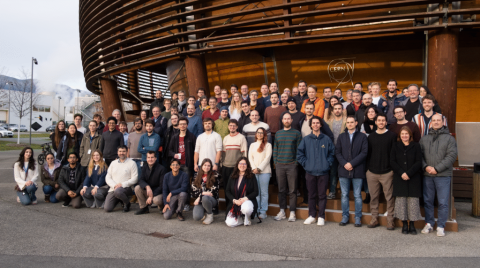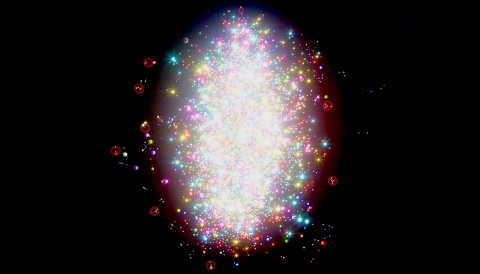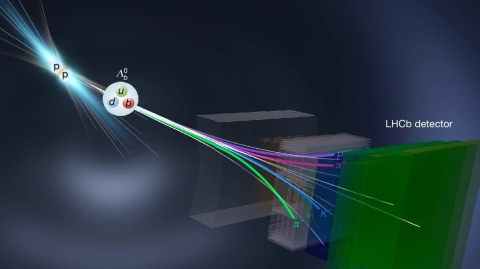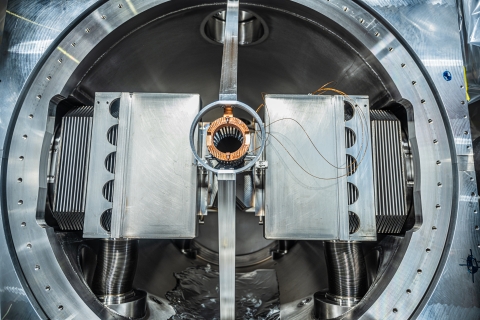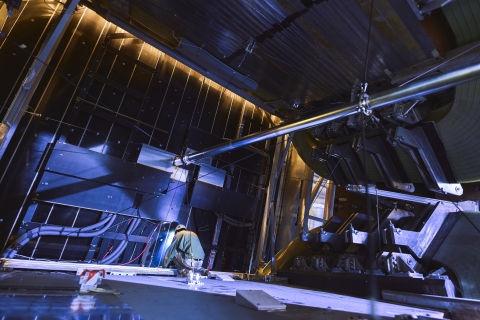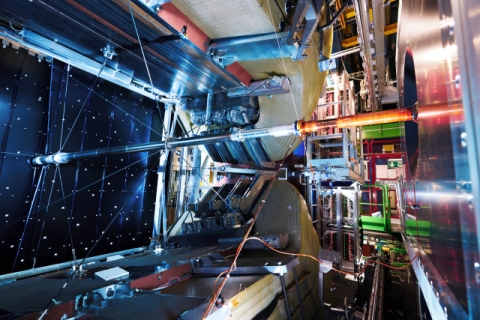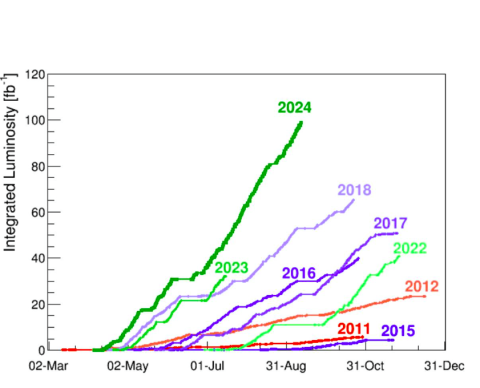LHCb
Highlights from the 2nd NGT Technical Workshop
Participants of the 2nd Next Generation Triggers Technical Workshop at the Globe of Science and Innovation. Picture: Mariana Velho From 19 to 21 November 2025, the Next Generation Triggers (NGT) project held its 2nd Technical Workshop at CERN’s…
Read moreLight ions at the LHC: first results from oxygen–oxygen and neon–neon collisions
This summer, the Large Hadron Collider (LHC) delivered its first-ever collisions between light ions, opening a new chapter in the study of nuclear structure and the quark–gluon plasma (QGP) – the extreme state of matter that existed in the first…
Read moreThe Asymmetry of the Universe: First Observation of CP Violation in Baryons
“What is that which always is and has no becoming, and what is that which becomes and never is?” — Plato, Timaeus 27d–28a It may sound like pure philosophy, yet for physicists it speaks to one of the most profound mysteries in physics: the matter–…
Read moreLHCb explores new physics in special light-ion LHC runs
The LHC carried out a special run programme early summer. First results were reported by the ALICE, ATLAS, CMS and LHCb experiments at the Initial Stages of High-Energy Nuclear Collisions conference. These results were also presented at a…
Read moreSMOG(2) at LHCb: a space experiment and a bowling alley
A famous aphorism, sometimes attributed to Max Planck, goes “When you change the way you look at things, the things you look at change". Since 2011, the LHCb experiment at the LHC has employed a System for Measuring Overlap with Gas (SMOG) to inject…
Read moreLHCb Upgrade II Scoping Document
CERN Research Board backs “Middle” scope for LHCb Upgrade II With the CERN Research Board’s endorsement on 14 April 2025, the LHCb Upgrade II Scoping Document has cleared its critical design-scope review, moving the project from proposal to…
Read moreNew Milestones in direct CP Violation: Observation in Baryons and First Evidence in Beauty Mesons to J/Psi
A Milestone in Understanding the Matter-Antimatter Asymmetry The LHCb collaboration has announced a groundbreaking achievement: the first-ever observation of CP violation in baryon decays. This result, presented at the Rencontres de Moriond EW…
Read moreTracing the Path to Precision: The Historical Evolution of Electroweak Physics at the LHC
The unification of the electromagnetic and weak-nuclear forces into an electroweak theory was one of the major breakthroughs of 20th century particle physics. In the 1960s, Steven Weinberg, Sheldon Glashow, and Abdus Salam proposed that these two…
Read moreLHC Run 3: A Marathon of Progress and Perseverance
Earlier this month, the Large Hadron Collider reached an unprecedented milestone of 100 inverse femtobarns – equivalent to 10 million billion collisions – delivered to the ATLAS and CMS experiments in 2024, with 28 days of proton-proton collisions…
Read moreNavigating Challenges: LHCb's Milestone Achievements and Intensive Data Collection in 2024
Photo of LHCb collaboration members gathered in the control room in April 2024. The LHCb experiment achieved significant milestones by the end of 2023, despite the challenges related to the LHC vacuum incident in the Vertex Locator (VELO) volume and…
Read more
